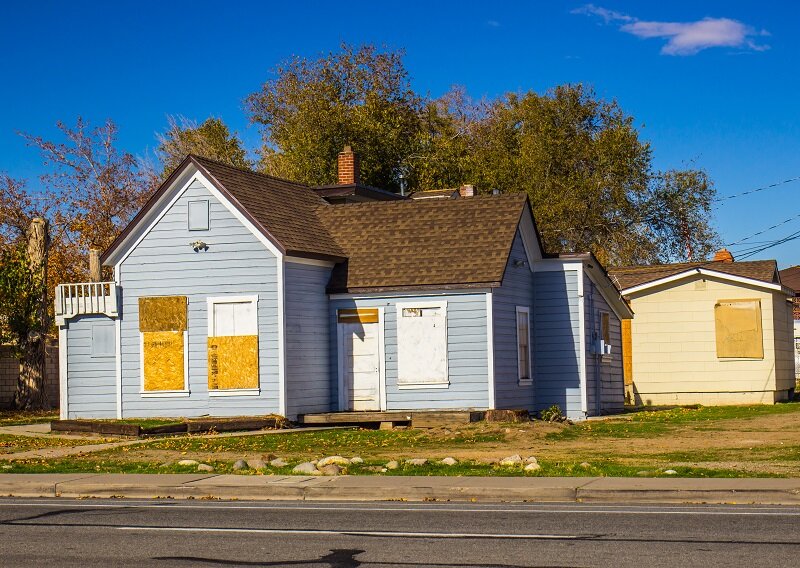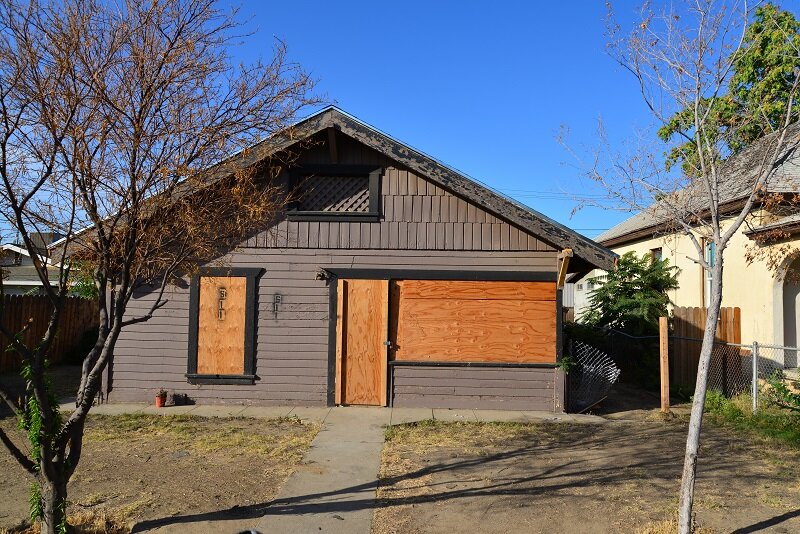
As a homeowner, your house is your biggest investment and a place where you build memories and feel safe. However, what happens when your home is suddenly deemed uninhabitable and condemned? It can be a terrifying and overwhelming experience that leaves you feeling lost and unsure of what to do next. Unfortunately, this is a reality for many homeowners in Texas.
In this article, we’ll explore what happens when a house is condemned in Texas, including what makes a house condemned in the first place.
Condemned Houses in 2022 Onward
A condemned house in 2022 onward is subject to a tear-down and can also bring down property values. Squatters can also sneak in and live there even if the property is unfit for human habitation. If you’re a homeowner in Texas facing the possibility of condemnation or want to know how to protect your investment, keep reading.
Why Houses Are Condemned
Houses can be condemned for various reasons, all related to safety concerns or code violations. In Texas, local authorities enforce building codes and ensure homes are safe for human habitation.
Let’s look at some of the most common reasons why houses are condemned.
Structural Damage
If your house has significant structural damage, occupancy may be deemed unsafe. Structural damage can be due to natural disasters like floods, earthquakes, or hurricanes. Other common causes of structural damage are neglect and lack of maintenance.
Health Hazards
Houses can be condemned if they pose a health hazard to occupants, which can include issues such as the following:
- Black mold
- Asbestos
- Lead paint
- Other hazardous materials
These issues can drop the market value of your home and cause respiratory problems or other health issues.
Fire Hazards
Fire hazards might include the following:
- Faulty wiring
- Overloaded circuits
- No smoke detectors
- No fire extinguishers
A hoarder with mounds of trash and other items might have their home condemned due to the fire hazard it creates.
Code Violations
Houses can be condemned if they violate local building codes, including issues such as the following:
- Inadequate insulation
- Improper ventilation
- Lack of proper egress
The good news is that if your home has these issues, you can fix them and potentially keep your home.
Illegal Activities
Homes used for illegal activities, such as drug production or prostitution, can be condemned and seized by the government. At this point, you will most likely not be able to get your property back, and you might end up in jail.
Eminent Domain
The government can claim eminent domain and take your property when deemed fit for public use. They must offer compensation at fair market value, however. You can refuse, but if you do, they can have your property condemned.
What Constitutes a Condemned House
Authorities do not simply walk up to a house and mark it condemned. There is a process involved, and several factors and warnings over several months go into condemning the house.
Here are some of the reasons why a home may be condemned:
- Structural issues: A house with significant structural damage, such as foundation issues or collapsed walls, can be condemned.
- Health hazards: Mold, asbestos, lead paint, or other hazardous materials that threaten human health can condemn a house.
- Electrical problems: These issues might include outdated or dangerous electrical systems that could cause fires or electrocution.
- Plumbing issues: Major plumbing problems that can cause flooding, sewage backups, or other safety hazards can cause a house to be condemned.
- Housing code violations: Houses that violate local building codes, such as inadequate insulation, improper ventilation, or lack of proper egress, can be condemned.
- Pest infestations: Severe pest infestations that pose a health hazard, such as rodents, termites, or bedbugs, can cause the authorities to condemn your house.
- Illegal activities: Houses used for criminal activities, such as drug production or prostitution, can be condemned.

What Happens When a House is Condemned
Several things happen when local authorities start the condemnation process. You might get evicted, or you might have to sell your house.
You Could Get Evicted
If the condemned home is occupied, the first order of business is evicting the tenants. If you’re the homeowner, you’re responsible for arranging safe relocation for yourself. As a renter, your landlord or the city pays the bill for relocation, depending on the circumstances surrounding the condemnation and eviction.
When the eviction notice is served, the property will be marked with a red tag that indicates it’s condemned and unsafe for occupancy. It dissuades potential renters from signing a lease.
Selling the House
You can also sell a condemned house. Selling a house in poor condition requires a buyer willing to handle the repair work. Alternatively, some buyers want the land and are willing to pay for a condemned house.
Either way, you must disclose the property’s condemned status and any issues with potential buyers.
Repair Requirements
You must bring your property up to code before it can be reoccupied, which might include the following:
- Obtaining permits
- Hiring contractors
- Making the necessary repairs to your home
Sometimes the issues leading to condemnation are too severe. In such cases, you must demolish the existing structure and rebuild a home from scratch.
Legal Action
If you fail to address the issues and bring your property up to code, you may face legal action from local authorities, including fines and potential seizure of the property. If you’ve received a condemnation notice, seeking legal advice immediately is best.
What Happens To Condemned Houses
When a house is condemned, the local government has determined the property is unsafe for human habitation due to safety concerns or code violations.
Here are some of the things that can happen to condemned houses:
- Red-tagging: The property will be marked with a red tag, indicating that it’s condemned and unsafe for occupancy.
- Repairs: The house must be brought up to code to lift its condemned status and allow for reoccupation. You’ll need to make the necessary repairs and upgrades to your home.
- Demolition: You might choose to demolish your home if the issues are too severe, you don’t have the money for repairs, or the repairs aren’t feasible or practical. You can then start fresh with a new home.
- Sale at a lower price: A home might be condemned because of plumbing issues, pest infestation, or electrical or structural problems. Don’t fix these things when selling a house because you can sell it to a buyer willing to take on the repair work for a lower price. However, you must disclose the property’s condemned status and all other issues.
Dealing with a condemned house can be complex and time-consuming. It’s vital to work with local authorities and professional contractors to address the issues promptly and ensure the safety of yourself and others.
If you’re considering selling a condemned house, ensure you disclose the property’s status and any known issues to potential buyers.
You can work with a realtor to find a buyer or find cash home buyers in Texas for a faster sale.
Can You Live in Condemned Houses
In most cases, you cannot live in a condemned house. Local authorities have condemned the property due to safety concerns or code violations, meaning it is unsafe for human habitation.
Once it’s condemned, it’s illegal to live in the house.
You may face fines or legal action from local authorities if caught, so before you ignore code enforcement and stay at a condemned property, seek legal advice first.
Living in a condemned house can also put you and your family at risk of injury or illness. The property likely has significant structural damage, hazardous materials, or other safety hazards making for hostile living conditions.
Choosing to stay in such a house compromises your health and safety and is never worth it.
If you own a condemned building in Texas, it’s crucial to take action to address the issues and ensure the safety of yourself and others. You might need to make significant repairs or hire professional contractors to bring the property up to code.
However, if the cost of repairs is too high or you need more time or resources to address the issues, you could sell a house fast in Wichita Falls, Amarillo, Lubbock, or other cities in Texas through a cash home buyer.
Cash home buyers are real estate investors specializing in purchasing properties in as-is condition, including condemned houses. They give a cash offer to ensure a quick and hassle-free sale.
They also don’t require repairs or renovations, and you don’t need to pay closing costs.
Final Word
We’ve examined what happens when a house is condemned and how difficult and stressful the experience can be. When a home is condemned, it’s necessary to take swift action to address the issues and ensure the safety of yourself and others. You may need to make significant repairs, work with local authorities, or even consider selling the property.
It’s vital to work with a reputable and experienced buyer who can offer a fair and hassle-free sale if you want to sell your condemned house in Texas. That’s where Four19 Properties comes in. We buy houses Houston residents know will be bought at a fair value.
Whether you’re facing foreclosure, dealing with a condemned house, or need to sell your property quickly, Four19 Properties can help. We offer cash payments of fair market value, fast closings, and a hassle-free sales process. So, if you’re ready to sell your house and move on, contact Four19 Properties today for a no-obligation offer on your condemned property.
